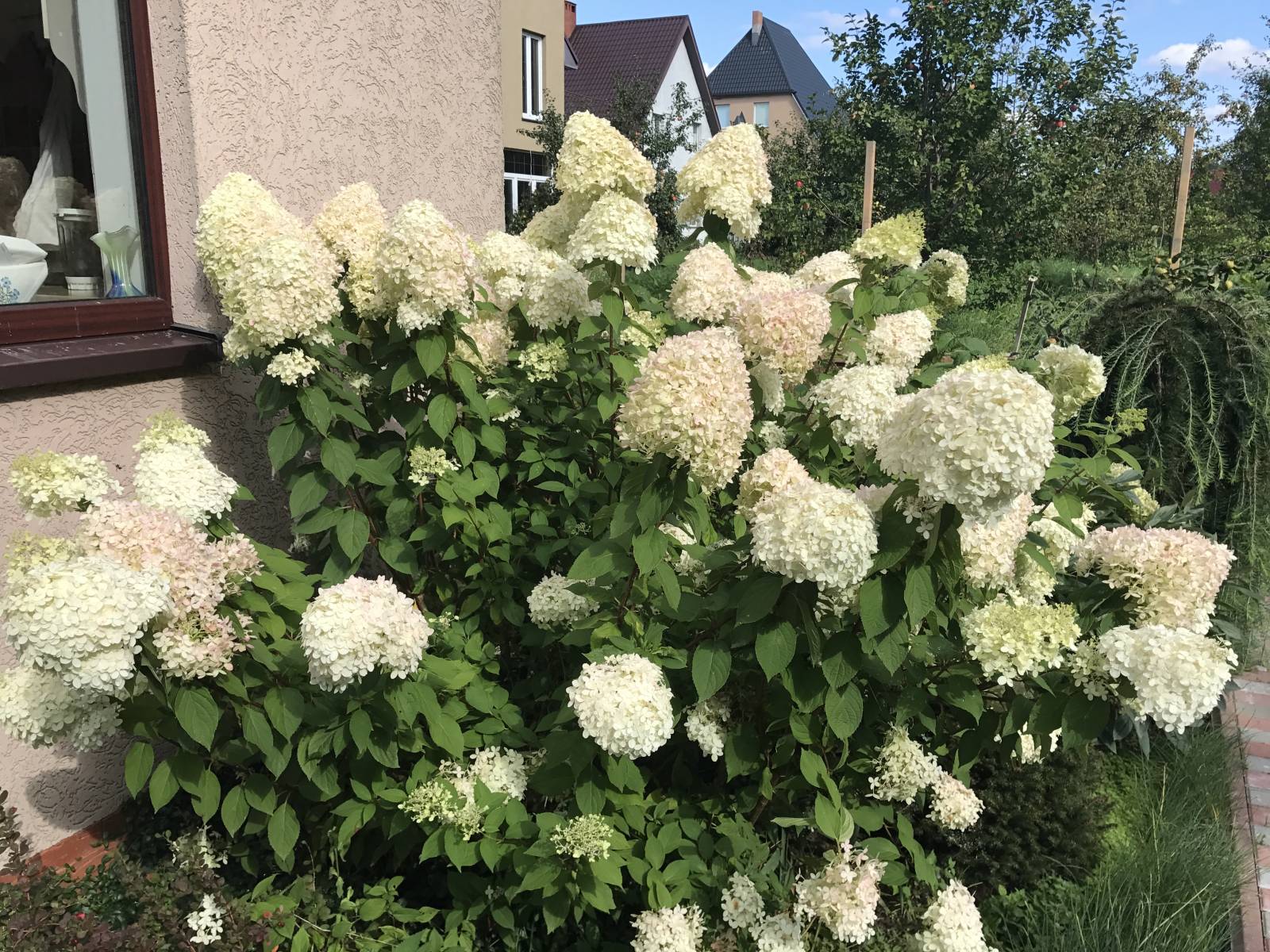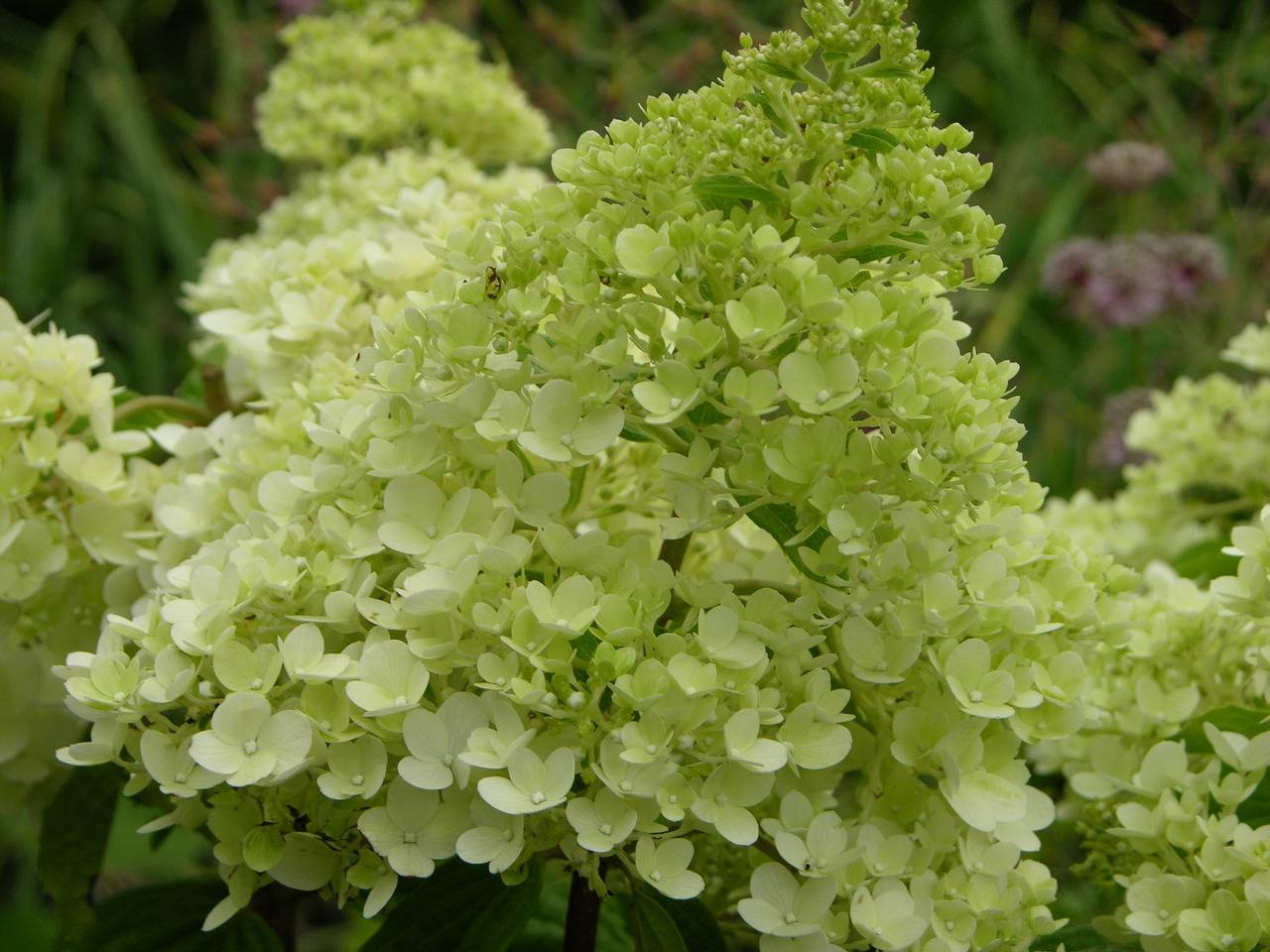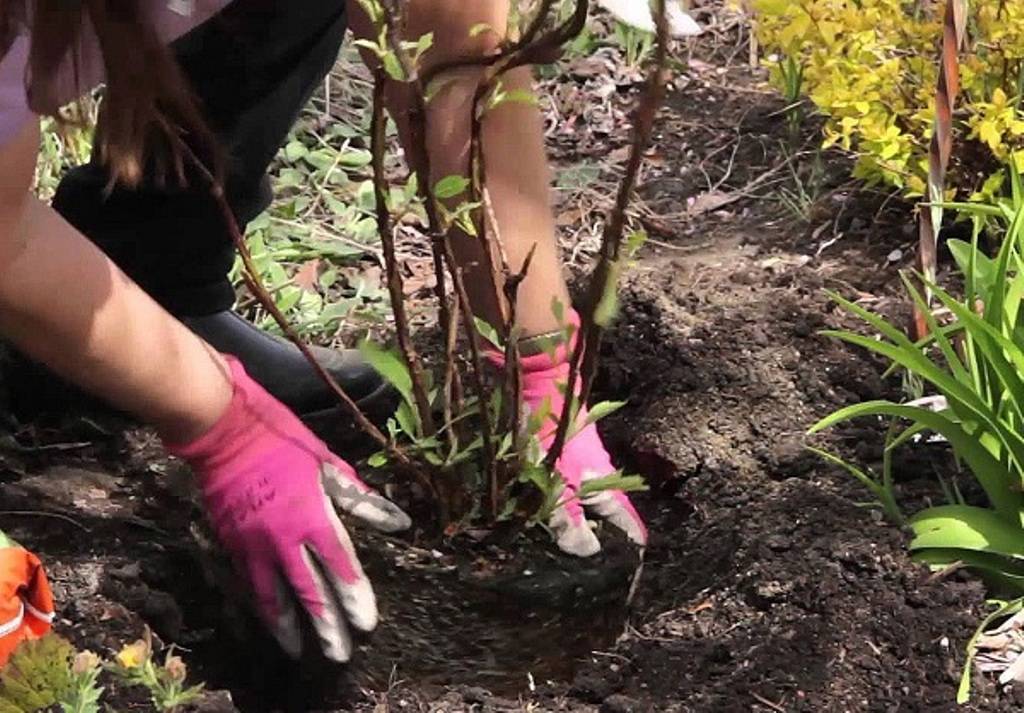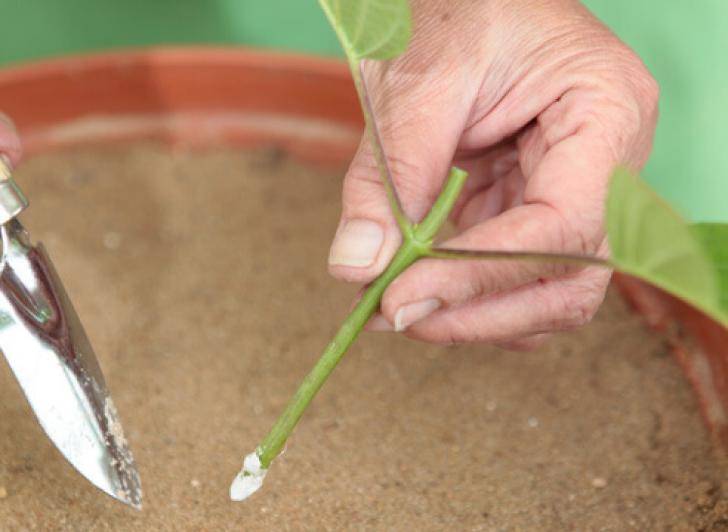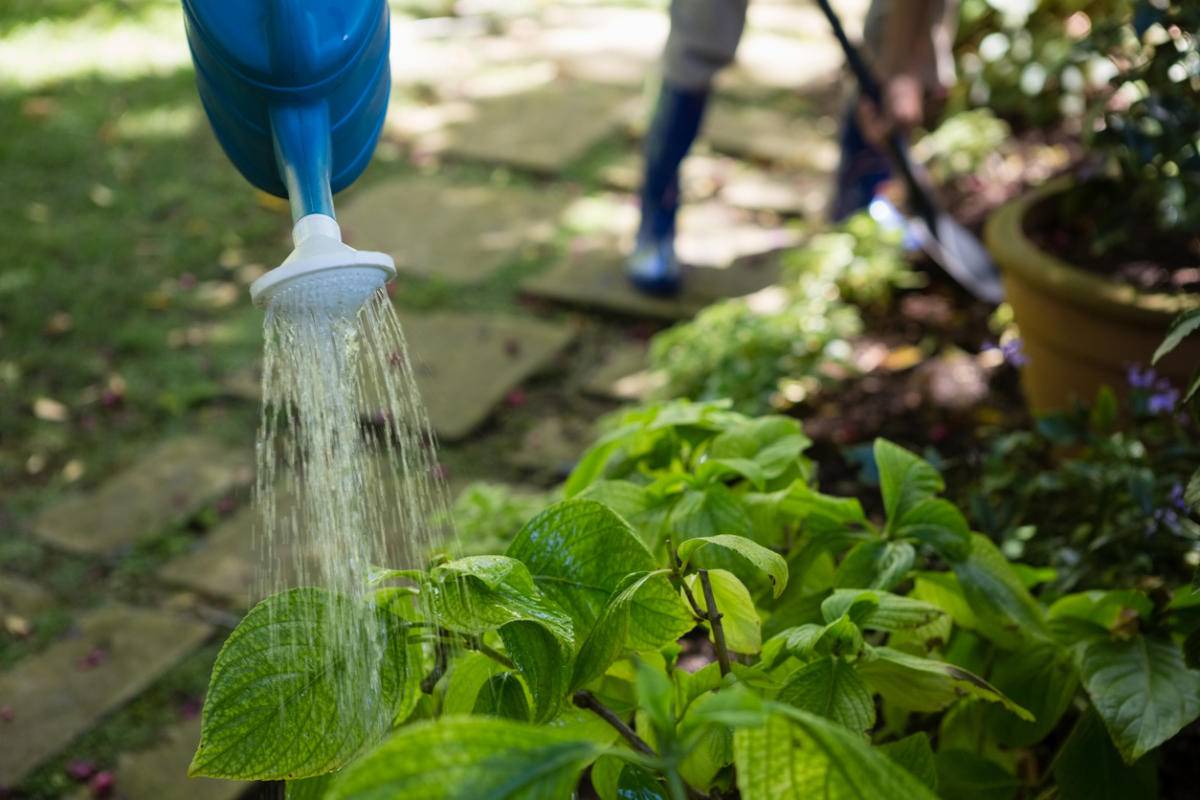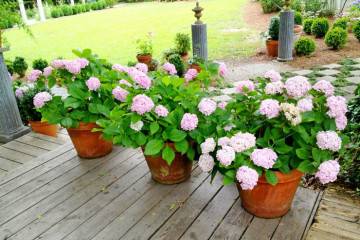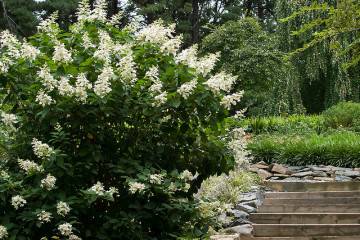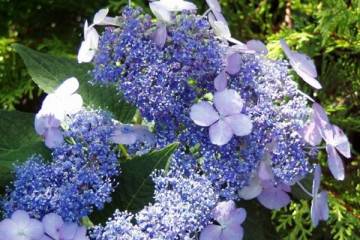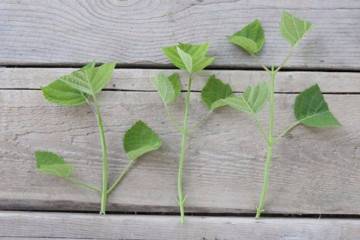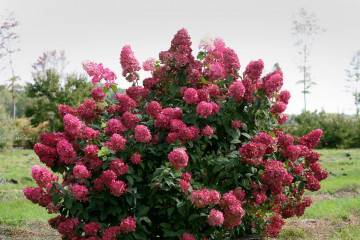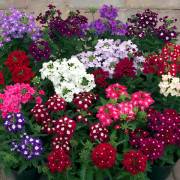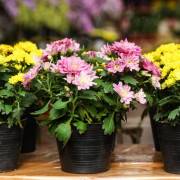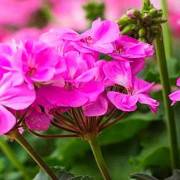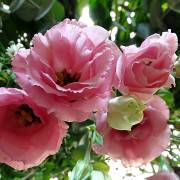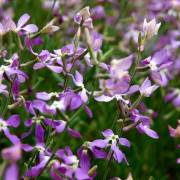Hydrangea Magical Moonligh - description
Content:
Magic Moonlight is a paniculate hydrangea. The plant is distinguished by large conical inflorescences. Flowering begins in July and lasts until frost. Below is information about growing a crop in a garden plot.
The origin and appearance of the Magic Moonlight hydrangea
The culture received the name for the extraordinary beauty of lush buds. Snow-white clouds of inflorescences fascinate with their spectacular appearance.
The shoots of perennial shrubs reach a height of 2-2.5 m. The Moonlight hydrangea spreads its crown 1.2 m wide. The shoots are long, strong. On them are ovoid leaves of a dark green color with clearly defined veins.
Description of the flower
Large inflorescences consist of small flowers that are tightly pressed against each other. At first, they have a lemon-green hue, by the end of summer, the buds acquire a white color.
In July, the inflorescences are rounded, gradually they acquire a conical shape. Their length reaches 30-40 cm. Flowering occurs on the shoots formed in the current year.
Transplanting culture after purchase in open ground
In order for the Magical Moonlight hydrangea to delight with its spectacular appearance for a long time, you need to purchase seedlings in a plant nursery or garden center. 3-year-old bushes will take root most easily.
Plants are not planted immediately after purchase. They were grown in greenhouse conditions, so they need to be hardened first. For this, the seedlings are taken out into the open air for 1-2 hours every day.
What is needed for landing
Hydrangea is planted on the site in spring or autumn. The territory is cleared of plant residues, dug up. Hydrangea prefers to grow in slightly acidic soil, so peat is added to it.
A hole is dug 2 weeks before planting. Its dimensions should be as follows: depth 50 cm, diameter - 70 cm. A drainage layer is laid on the bottom, then fertilizer consisting of humus, superphosphate, potassium sulfate.
Before planting, they can be sprinkled with a growth enhancer powder, for example, root.
Choosing the best place
The territory is selected well-lit by the sun's rays. Planting in partial shade is allowed, but in this case, the inflorescences can remain lemon green throughout the season.
The site is also selected protected from cold winds. Groundwater should not come close to the surface of the earth.
Magical Moonlight panicle hydrangea bushes grow large, so they do not need to be planted close to each other and buildings.
Step-by-step planting process
Plant a crop on the site as follows:
- Dig a hole at least 50 cm deep.
- Lay out a drainage layer, then a fertilizer layer.
- Fertile soil is poured.
- A seedling is placed in the middle, covered with a substrate.
- Watering.
The root circle of planted plants is mulched with peat, straw, sawdust.
Reproduction
Gardeners most often plant hydrangeas with cuttings or layering. You can also propagate it by seed. But in this case, you will have to wait a long time for the first inflorescences on the bushes.
Cuttings
Before the start of sap flow, the shoots thickening the crown are cut off. They can be cut into several pieces and a new plant can be grown from each piece. The procedure is performed as follows:
- Shoots are cut into pieces 10-15 cm long.
- Placed in a growth stimulator for a few minutes.
- A substrate consisting of sand and peat is poured into the container.
- Prepared cuttings are placed in it.
- Cover with a transparent film.
The shelter contributes to the creation of the greenhouse conditions necessary for the rapid rooting of cuttings. The film is removed every day, wiped from condensation. When the cuttings begin to grow, they are transplanted into separate pots. The bushes are planted on the site after a year.
Growing from seeds
Sowing is started in late winter or early spring. The procedure is performed as follows:
- The seeds are soaked in a solution of potassium permanganate.
- In a box with low sides, a substrate is poured, consisting of peat, turf and leafy soil, and sand.
- Seeds are spread over the surface.
- Sprinkle on top with a small layer of sand.
- The container is covered with glass or foil.
Covering material is removed every day to ventilate the container with crops. When 3-4 leaves are formed on young bushes, they are seated in separate pots. Well-formed plants are planted in open ground.
Care
Care consists in timely watering, feeding, loosening and mulching the soil. Beginning to dry buds with part of the stems are cut off. The procedure will not only maintain the decorative appearance of the hydrangea, but also contribute to the growth of new shoots.
Watering mode
Immediately after planting, the bushes are watered every day. Then irrigation is carried out after the topsoil has dried. About 30 liters of water are poured under each plant.
The land under the bushes is loosened a few days after watering. To preserve moisture, the root circle is mulched with peat, sawdust, and hay.
Top dressing
For the rapid growth of the aerial part, the hydrangea is fed with nitrogen in the spring. To do this, dilute 10 g of urea in a bucket of water and pour it under the bush. At the same time, the earth must be moistened, otherwise the root system may be damaged.
During the period of bud formation and at the beginning of flowering, potassium-phosphorus fertilizing is applied under the plants. In late autumn, organic matter is added under the bushes, for example, rotted manure or compost.
Features of care during flowering
When the Magical Moonlight hydrangea is in bloom, it needs to be as comfortable as possible. At this time, it is watered abundantly, diseased, broken branches are cut off.
If the crown is thickened, it is thinned out. Then the buds will have enough sunlight for a beautiful lush flowering. Dried inflorescences are cut off.
Features of care during the rest period
After flowering, dry, diseased shoots are cut. Then the bushes are fed. This will help the hydrangea survive the harsh winter. In mid-autumn, the culture is watered abundantly.
Preparing for winter
Moonlight panicle hydrangea is a winter-hardy plant. It is able to withstand frosts down to -30 ° C. Therefore, in the southern regions, bushes are not covered for the winter. Particular attention should be paid only to young seedlings, they are sprinkled with peat to a great height.
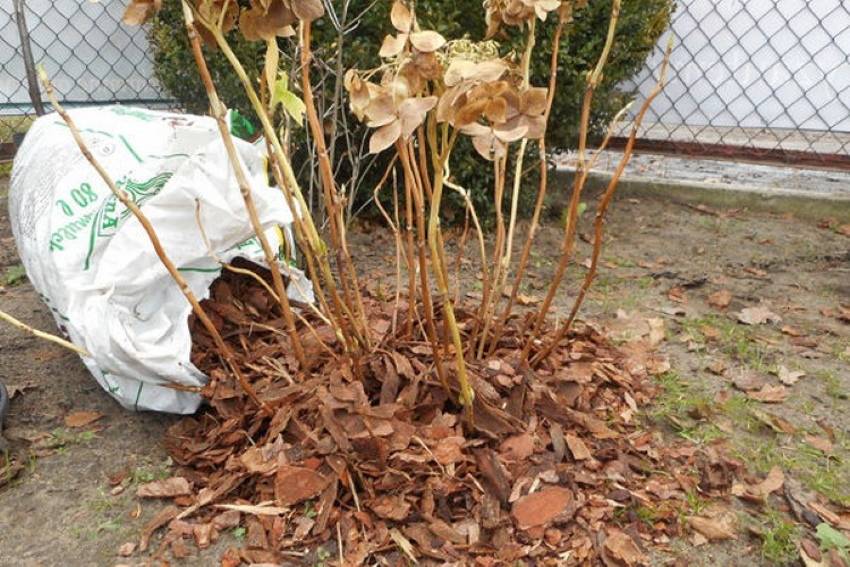
Hydrangea Moonlight tolerates winter well, so for the winter you can only sprinkle the trunk circle with mulch
In the northern regions, a flooring of straw and spruce branches is being built under the bushes. Shoots are bent to it, wrapped in agrofibre. When snow falls, it is thrown over the structure.
Magic Moonlight is a hydrangea variety with large cone-shaped buds of white-green color. Culture is easy to care for. It needs to be watered abundantly, fed several times per season, cut off the faded buds. With correctly performed agrotechnical measures, hydrangea can develop and bloom in one place for many years.
